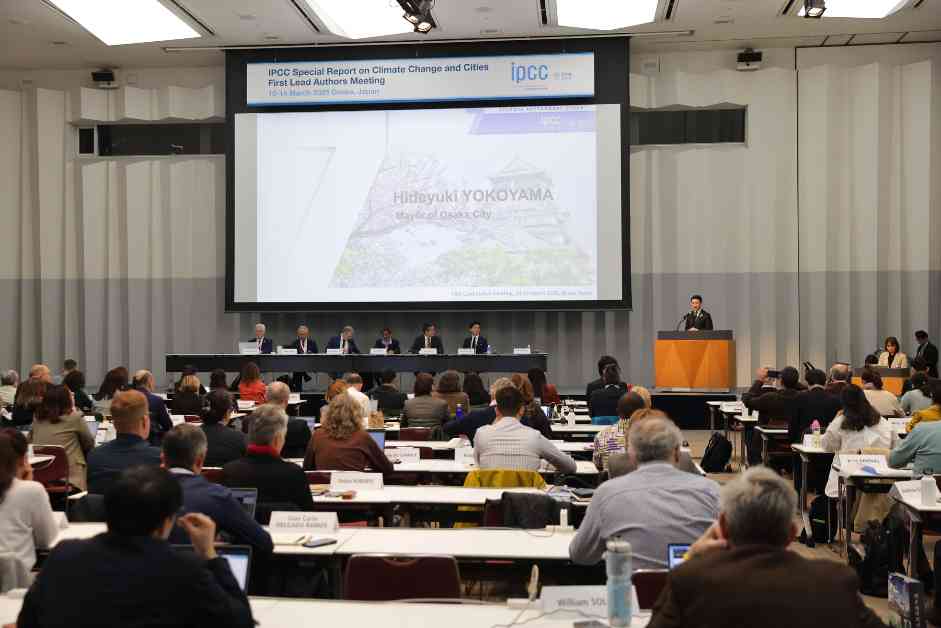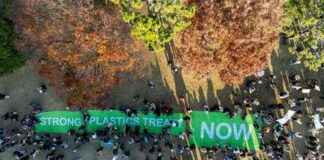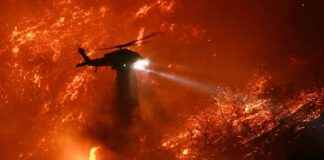US Scientists Continue to Drive Climate Research Amid Political Challenges
In the face of a shifting political landscape that has seen the U.S. government step back from international climate initiatives, a dedicated group of American scientists is standing firm in their commitment to the fight against climate change. Despite directives from the Trump administration to disengage from global climate collaboration, five U.S. scientists are actively participating in the Intergovernmental Panel on Climate Change (IPCC), a team of 100 experts from 50 countries. These scientists recently convened in Osaka, Japan, to begin drafting a report on global warming and cities, slated for release in 2027.
The Resilience of the IPCC Amid Political Turmoil
Kevin Gurney, an atmospheric scientist at Northern Arizona University, is one of the U.S. scientists involved in the IPCC process and has contributed to every assessment since 1990. Reflecting on his long-standing involvement, Gurney expressed surprise at the lack of serious response from global leaders to the alarming reports issued by the IPCC. He noted the increasing challenges faced by U.S. scientists due to the administration’s stance on international cooperation and climate science.
Gurney’s personal account of his journey with the IPCC underscores the dedication and passion that drive these scientists to continue their work in the face of political obstacles. Despite uncertainties surrounding federal funding for future engagements with the IPCC, Gurney remains steadfast in his commitment to the cause, emphasizing the importance of the scientific process in addressing the urgent issue of climate change.
Navigating Funding Challenges and Uncertain Futures
The lack of clarity surrounding future U.S. engagement with the IPCC presents significant challenges for American scientists, particularly in terms of funding and logistical support. With federal travel funds for IPCC meetings hanging in the balance, researchers like Gurney and his colleagues are left to grapple with the prospect of self-funding their participation in crucial climate research efforts.
The absence of clear guidance from the U.S. government on nominating scientists for IPCC roles adds another layer of uncertainty to the equation. While the traditional process of federal nominations may be disrupted under the current administration, alternative pathways for participation and engagement are being explored by scientists and advocacy groups to ensure continued U.S. involvement in the IPCC.
The Human Impact of Climate Science on Cities
As the IPCC shifts its focus to the critical role of cities in climate change mitigation and adaptation, U.S. scientists like Julie Arrighi are at the forefront of this pivotal research. Highlighting the significance of urban areas in global emissions and climate impacts, Arrighi emphasizes the urgent need to address the vulnerabilities of cities in the face of a changing climate.
The personal stories and perspectives shared by scientists like Gurney, Ebi, and Arrighi underscore the human element of climate science and the profound impact of their work on communities around the world. Despite political challenges and funding uncertainties, these scientists remain dedicated to advancing climate research and driving meaningful action in the fight against climate change.
In conclusion, the resilience and determination of U.S. scientists in the face of political adversity serve as a powerful reminder of the critical role of scientific expertise in shaping our response to the climate crisis. As the global community grapples with the urgent need for climate action, the voices and efforts of these dedicated scientists remain a beacon of hope and inspiration in the quest for a sustainable future.














